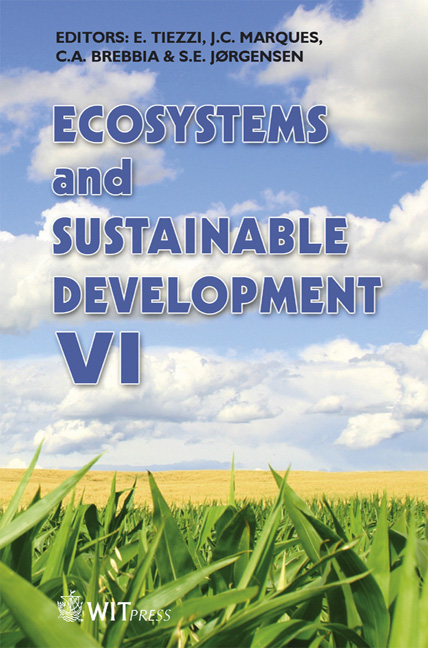Contributions Of Biogeotextiles To Sustainable Development And Soil Conservation In Developing Countries: The BORASSUS Project
Price
Free (open access)
Transaction
Volume
106
Pages
19
Published
2007
Size
1,287 kb
Paper DOI
10.2495/ECO070131
Copyright
WIT Press
Author(s)
M. A. Fullen , C. A. Booth , et al. (see last page for other authors)
Abstract
Field and laboratory studies indicate that geotextile mats constructed from palm leaves are an effective, sustainable and economically viable soil conservation technique. The three-year (2005–08) EU-funded BORASSUS Project (Contract Number INCO-CT-2005-510745) is evaluating their long-term effectiveness in controlling soil erosion and assessing their sustainability and economic viability. These studies are in progress in 10 countries, both in the ‘industrial north’ (in Europe) and in the ‘developing south’ (Africa, South America and South-East Asia). This paper focuses on agro-environmental applications and potential in the ‘developing south’ (The Gambia, South Africa, Brazil, China, Thailand and Vietnam). Biogeotextiles offer potentially novel bioengineering solutions to environmental problems, including technologies for soil conservation, sustainable plant production and use of indigenous plants, improved ecosystem management, decreasing deforestation, improving agroforestry and cost-effective geotextile applications in diverse environments. Biogeotextiles may provide socio-economic platforms for sustainable development and the benefits for developing countries may include poverty alleviation, engagement of local people as stakeholders, employment for disadvantaged groups, small and medium enterprise (SME) development, earning hard currency, environmental education and local community involvement in land reclamation and environmental education programmes. These benefits are achieved through: (a) promotion of sustainable and environmentally-friendly palm agriculture to discourage deforestation, promoting both reforestation and agroforestry; (b) construction of palm geotextiles enabling development of a rural labour-intensive industry, particularly encouraging employment of socially-disadvantaged groups and (c) export of palm geotextiles to industrialized countries could earn hard currency for developing economies, based on the principles of fair trade. Keywords: soil and water conservation, bioengineering technology, socio-economic development.
Keywords
soil and water conservation, bioengineering technology, socio-economic development.





